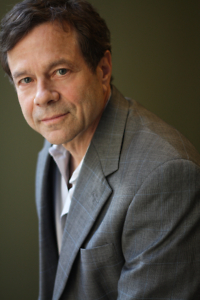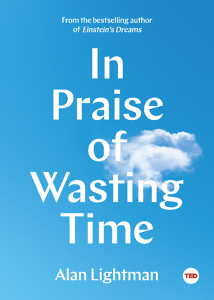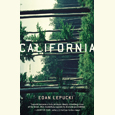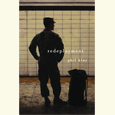Idler’s Manifesto
Alan Lightman makes the case for slow living with In Praise of Wasting Time
We love to complain about our hyped-up, continually wired existence. Articles about the loneliness and alienation created by digital addiction are, ironically, an Internet staple, and we’re constantly reminded about the dangers of stress and sleep deprivation. But it’s rare to find a thoughtful argument promoting the alternative. What’s really so great about silence and solitude? Why should we seek opportunities to get nothing done? With In Praise of Wasting Time, novelist and essayist Alan Lightman sets out to answer those questions and make the case for restoring at least a little idleness to our lives.

Lightman is a scientist as well as a writer, and hardly a technophobe, but he has long been skeptical about the digital revolution and the smartphone’s relentless demands on our attention. He touched on this concern in his essay collections The Accidental Universe and Searching for Stars on an Island in Maine, and he expands on it here with a particular focus on children and young adults who have never known an offline existence. He cites a recent experiment in which a startling percentage of college students—67 percent of the men, 25 percent of the women—chose to give themselves an unpleasant electric shock rather than sit alone, deprived of their smartphones, for twelve minutes. Apparently, pain was preferable to a brief period of quiet contemplation.
Lest we think he is immune to this pull of the electronic leash himself, Lightman describes how he finally gave in and got a smartphone of his own, after years of resistance, because a passenger used one to help him navigate a difficult nighttime boat trip to his island home in Maine. Not surprisingly, his resolve to use his phone strictly for calls and navigation crumbled, and he was soon watching videos and compulsively checking work email like the rest of us. “I have heard the song of the Sirens and succumbed,” he writes. “I should have tied myself to the mast.”
Once Lightman gets this lament out of the way, he turns to the real heart of In Praise of Wasting Time, which is a passionate plea for re-embracing everything the Internet age abhors: moving slowly, ignoring the clock, turning inward to a true, un-curated self, and letting the mind wander where it will, “away from the rush and heave of the world.” Unlike those college students in the experiment, Lightman fondly recalls a youth in which he dawdled away many hours alone with his thoughts, exploring the world around him and puzzling over its mysteries.
 In other words, he spent a lot of time playing, and he devotes a chapter here to the critical importance of play in developing creativity and problem-solving skills. “In various ways,” he writes, “the escape from structure and schedule, the indulgence in space without time, the development of one’s inner world, and the full release of the imagination are all interconnected.” Experiments with children, adults, and even animals bear this out, and Lightman pokes pretty hard at the contemporary approach to parenting that makes childhood an uninterrupted combination of structured activities and screen time.
In other words, he spent a lot of time playing, and he devotes a chapter here to the critical importance of play in developing creativity and problem-solving skills. “In various ways,” he writes, “the escape from structure and schedule, the indulgence in space without time, the development of one’s inner world, and the full release of the imagination are all interconnected.” Experiments with children, adults, and even animals bear this out, and Lightman pokes pretty hard at the contemporary approach to parenting that makes childhood an uninterrupted combination of structured activities and screen time.
He undercuts the notion that hard-charging ambition and frenetic work fuel achievement by citing a number of counterexamples. Gertrude Stein, for instance, spent a lot of time staring at cows and rocks. Federico Fellini rose at six in the morning to spend time puttering around the house and going for walks. A resting mind, Lightman argues, is not truly idle, but rather is preparing itself for “divergent” thinking—the sort of thinking that leads to creative inspiration and insight. Neuroscience seems to be on his side here. Free-floating thought activates different areas of the brain than task-focused thinking. “Something physically identifiable goes on,” he says, “when we let our minds wander and spin.”
Given that downtime seems clearly good for us and our endeavors, the question remains: how are we to find it in this hyper-connected world? Here Lightman takes a cue from the great biologist E.O. Wilson, who has advocated conserving half the earth’s surface in an undeveloped state. “Wilson’s proposal is bold,” he writes. “I would like to make a similarly bold proposal: that half our waking minds be designated and saved for quiet reflection.” It’s a daunting idea but a compelling one, and Lightman offers a number of practical suggestions for pursuing it, particularly within our educational system. And the reward he envisions might tempt even the most devoted techie: “It is a liberation from the cage of the wired world. It is freedom.”

Maria Browning is a fifth-generation Tennessean who grew up in Erin and Nashville. Her work has appeared in Guernica, Literary Hub, and Still. She is the managing editor of Chapter 16. .


